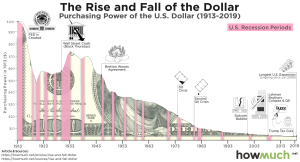Stefanie Stantcheva, a prominent Harvard economist, has made waves in the field of economics by earning the coveted John Bates Clark Medal in 2025. This distinguished award is presented annually to an under-40 economist recognized for significant contributions to economic theory and practice. Stantcheva’s innovative research focuses on tax policy and its intricate relationship with economic behavior, shedding light on how effective tax designs can foster innovation and economic growth. In her celebrated work, she has not only examined public finance but has also established the Social Economics Lab, driving forward critical insights on pressing issues such as immigration and climate change. Her dedication to understanding economic mechanisms and influencing policy innovation makes her a vital voice in contemporary economic discourse.
Stefanie Stantcheva stands at the forefront of contemporary economic research, recognized for her groundbreaking contributions that illuminate the complexities of fiscal policies. As a Harvard-based academic, she has pioneered significant studies that explore the nexus of taxation and innovation, providing critical insights into how these elements interact within the framework of social economics. The John Bates Clark Medal symbolizes her dedication as an emerging leader under 40 in the economic landscape, highlighting her influential role in shaping policies that impact societal outcomes. Through her work in the Social Economics Lab, Stantcheva continues to investigate crucial themes such as economic behavior and the interplay of emotions with tax policies, effectively bridging theoretical knowledge with practical implications. Her research lays the groundwork for understanding the forces that motivate economic decisions and behaviors in today’s dynamic environment.
Stefanie Stantcheva: A Rising Star in Economics
Stefanie Stantcheva has emerged as a significant figure in the realm of economics, particularly noted for her remarkable contributions to public finance. Awarded the prestigious John Bates Clark Medal, she represents a new generation of economists who are reshaping our understanding of economic behavior and tax policy. This accolade not only recognizes her individual accomplishments but also highlights her role in addressing critical economic questions that affect innovative practices in both public and private spheres.
As the Nathaniel Ropes Professor of Political Economy at Harvard, Stantcheva’s research delves into the intricate relationship between taxation and economic performance. Through her pioneering work, she emphasizes how well-designed tax systems can stimulate growth and innovation. Her examination of the 20th-century taxation landscape unveils vital insights into how tax policies can be optimized to foster a thriving economy.
The Importance of the John Bates Clark Medal
The John Bates Clark Medal is one of the most sought-after awards in the field of economics, typically awarded to economists under the age of 40 who have made outstanding contributions. This honor is a testimony to an economist’s intellectual prowess and their potential for influencing future economic discourse. Recipients like Stefanie Stantcheva exemplify how innovative ideas in tax policy and economic behavior can shape the way policymakers approach pressing societal issues.
Winning the Clark Medal not only enhances the recipient’s academic credibility but also shines a spotlight on the challenges currently facing economies. As demonstrated by Stantcheva’s work, economists are increasingly required to address systemic issues within public finance that affect innovation and the overall economic landscape. The award serves as a recognition of transformative research that can lead to necessary changes in policies at local and global levels.
Innovative Insights on Tax Policy
Stefanie Stantcheva’s exploration of tax policy has yielded groundbreaking insights into how taxation can influence innovation and economic behavior. Through her comprehensive study, “Taxation and Innovation in the 20th Century,” she provided empirical evidence demonstrating that higher taxes could stifle the quantity of innovation but not necessarily undermine the quality of inventions. This distinction is crucial for policymakers aiming to balance tax revenues with the need to foster an environment conducive to creativity and technological advancement.
Stantcheva’s research indicates that when tax systems are crafted thoughtfully, they can motivate economic activities that lead to innovative breakthroughs. By understanding the elasticity of innovation concerning tax policy changes, her findings suggest that adjustments to tax structures may effectively encourage inventive pursuits, ultimately benefiting economic growth and development.
The Social Economics Lab: A Hub for Economic Research
In 2018, Stefanie Stantcheva founded the Social Economics Lab, a research initiative dedicated to uncovering the complex relationship between economic behavior and social perspectives. The lab reflects her commitment to understanding how societal elements intertwine with economic policies. With a focus on topics such as trade, immigration, and social mobility, the Social Economics Lab is an incubator for innovative economic thought and policy development.
This initiative has positioned Stantcheva at the forefront of exploring the psychological aspects of economics, including the role of emotions in shaping people’s responses to economic policies. By examining mindsets like zero-sum thinking, the lab aims to enhance the comprehension of economic issues within the larger social context, reinforcing the importance of interdisciplinary approaches to economic research.
Economic Behavior Insights from Stantcheva
Stefanie Stantcheva’s work significantly contributes to our understanding of economic behavior by providing fresh perspectives rooted in empirical research. Her in-depth analyses often highlight the implications of tax policy on individuals’ decision-making processes, thereby revealing the underlying behavioral motivations that drive economic activity. This focus on the human element enables policymakers to design strategies that resonate more effectively with the populace.
By integrating insights from economic behavior theory and applied economics, Stantcheva’s research underscores the necessity of a nuanced approach to economic policies. Her findings suggest that economic interventions must account for psychological factors if they are to succeed in fostering innovation and supporting economic resilience.
The Role of Public Finance in Economic Innovation
Public finance plays a pivotal role in shaping the economic landscape by influencing resource allocation, investment in infrastructure, and funding for innovation. Stefanie Stantcheva’s research elucidates the significant impact tax policy has on encouraging or inhibiting such innovation. The design of tax systems can either catalyze economic dynamism or create obstacles, and Stantcheva emphasizes the crucial need for innovative public finance frameworks.
As a leading economist, her dedicated research in public finance seeks to provide insights that inform better taxation strategies. By demonstrating how tax incentives can effectively stimulate innovation, she advocates for a tax system that not only supports sustained growth but also addresses socioeconomic disparities.
Celebrating Achievements in Economics
Recognition of achievements in economics, such as the John Bates Clark Medal awarded to Stefanie Stantcheva, reinforces the discipline’s commitment to excellence and advancement. Such honors shine a light on the vital contributions of young economists, encouraging fresh ideas that will spark discussions and foster development. Celebrating these milestones serves to inspire both current and future economists to pursue groundbreaking research.
Moreover, the acknowledgment of Stantcheva’s work aligns with Harvard’s tradition of promoting innovative economic thought. It showcases the importance of academic communities in nurturing talent who will lead the next generation of economists in tackling complex societal challenges through their research and policy innovations.
Exploring Emotional Interplay in Economic Policies
Stantcheva’s ongoing work at the Social Economics Lab delves into how emotions influence public perception and acceptance of economic policies. By investigating these psychological dynamics, she aims to shed light on the complexities of public response to economic measures. Understanding the emotional backdrop against which economic policies are evaluated is essential for crafting solutions that resonate with the public.
This innovative approach has the potential to transform not only how economists view policy effectiveness but also how policies are communicated to a broader audience. By tuning into the emotional elements of economic discussions, economists can bridge the gap between academic research and public understanding, fostering greater engagement and support for necessary economic reforms.
Insights on Taxation and Economic Growth
The relationship between taxation and economic growth remains a critical area of study for economists, and Stefanie Stantcheva’s research brings valuable insights to this discussion. Her findings illustrate that while higher taxes can reduce the level of innovation, strategic tax incentives can enhance economic performance. This dual perspective is essential for framing tax policy in a manner that promotes both fairness and growth.
Stantcheva’s work encourages lawmakers to consider the broader economic implications of taxation beyond immediate revenue generation. By fostering a tax environment that carefully balances incentivizing innovation while ensuring equity, her research empowers policymakers to make informed decisions that drive economic prosperity.
Frequently Asked Questions
What notable award has Stefanie Stantcheva recently received?
Stefanie Stantcheva has been awarded the prestigious John Bates Clark Medal for 2025, recognizing her significant contributions as a Harvard economist under the age of 40.
How has Stefanie Stantcheva influenced tax policy innovation?
Stefanie Stantcheva has made groundbreaking contributions to tax policy innovation through her research, demonstrating how tax systems can significantly affect economic behavior and stimulate or discourage innovation.
What is the Social Economics Lab founded by Stefanie Stantcheva?
The Social Economics Lab, founded by Stefanie Stantcheva in 2018, focuses on exploring the intersections of economic behavior, public policy, and social issues like trade, immigration, and climate change.
In what ways does Stefanie Stantcheva’s research address economic behavior insights?
Stefanie Stantcheva’s research provides valuable economic behavior insights by examining how tax policy affects innovation and economic activity, revealing the elastic responsiveness of innovation to tax changes.
What does Stefanie Stantcheva’s study ‘Taxation and Innovation in the 20th Century’ reveal?
In her study ‘Taxation and Innovation in the 20th Century,’ Stefanie Stantcheva and her co-authors found that while higher taxes negatively impact the quantity of innovation, they do not diminish the quality of inventions.
Why is the John Bates Clark Medal significant for economists like Stefanie Stantcheva?
The John Bates Clark Medal is significant as it honors economists under 40 for outstanding contributions to the field, highlighting the importance of researchers like Stefanie Stantcheva in advancing economic thought and policy.
What key topics is the Social Economics Lab under Stefanie Stantcheva currently exploring?
The Social Economics Lab, under Stefanie Stantcheva’s leadership, is currently exploring the interplay between emotions and policy, alongside addressing critical mindsets such as zero-sum thinking in economic contexts.
How does Stefanie Stantcheva view the impact of tax systems on economies?
Stefanie Stantcheva views tax systems as powerful tools that can either promote innovation and economic activity or hinder them, emphasizing the need for well-designed tax policies.
What are some challenges addressed in Stefanie Stantcheva’s recent work?
Stefanie Stantcheva’s recent work tackles challenges related to trade, immigration, climate change, and social mobility, shedding light on how these issues intertwine with economic behavior and policy implications.
| Category | Details |
|---|---|
| Award Received | John Bates Clark Medal (2025) |
| Award Significance | Recognizes significant contributions of under-40 economists |
| Key Areas of Research | Tax policy, innovation, economic behavior |
| Notable Findings | Higher taxes negatively impact the quantity of innovation but not the quality. |
| Notable Achievements | Founded the Social Economics Lab in 2018, focusing on trade, immigration, climate change, and social mobility. |
| Future Aspirations | Exploring the interplay between emotions and economic policy. |
Summary
Stefanie Stantcheva is a leading economist who has made groundbreaking contributions to the field, particularly in tax policy and its effects on innovation and economic behavior. Her recent recognition with the John Bates Clark Medal highlights her pivotal role in advancing our understanding of these crucial economic issues. With a focus on the impacts of taxation and the interplay between emotions and policy, Stantcheva continues to lead important discussions that shape the future of economic research.




